Magic: The Gathering, a turn-based strategy game in which players assume the roles of various wizards and summon mighty creatures like dragons, angels, and giant underwater lobsters, is not exactly known for its legions of female players.
Magic women are a wildly underrepresented group within an already insular community. Beyond the obstacles of breaking into a predominately white and male scene—which can be frustrating, and at times toxic enough, to dissuade someone from touching the game ever again—to participate at competitive events is an extraordinary feat of its own.
Videos by VICE
Sanctioned Rules Enforcement Level events, where players compete for cash prizes include everything from small weekly competitions at your local game store, to Grand Prix’s, to the largest open Magic events in the world. Competitive players might drop upwards of hundreds, maybe thousands of dollars a year traveling, paying for hotel rooms, plane tickets, gasoline, meals, tournament fees and more—not to mention spending countless hours practicing, grinding for the events they participate in. Factor in the cost of the cards themselves (some collector’s decks can top out at $2,000 dollars) and it becomes clear that being a competitive player is no small investment.
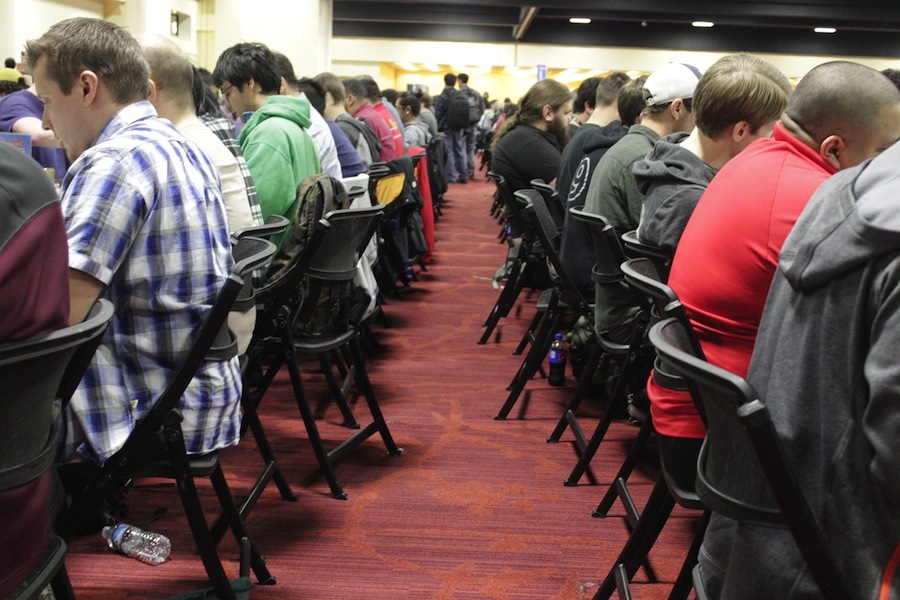
“It’s one of my favorite questions,” says Amie, 44, a chef and co-founder of the Bay Area Lady Planeswalkers Society, “Why don’t more women compete? Really what you’re talking about is women that have the time and comfort level and resources to go on the grind. When you’re on the grind, you’re playing as much Magic as you can at every opportunity, in a heavily male dominated environment. That also involves travel. If you have a team, or a group of people you’re on the grind with you often have to drive. Are you comfortable with riding with four dudes for eight hours? You’re gonna have to get your own hotel room, because it’s highly likely that you, or your partner, or a person’s partner, aren’t going to be totally kosher with you being in the same hotel room…Moreover, you probably also have a job. Where do you get the time? And then if you’re, say, a woman who is anywhere from 25 to 40, you may have children. How does having children impact your ability to go on the grind and play Magic?”
Read More: Photos of a Thriving Female Cosplay Community in Russia
It’s been estimated that women, transgender, and gender non-conforming players make up 1-5 percent of the competitive Magic players. Fortunately, the Magic community is diverse along other axis lines—race, age, disability, and sexuality—and the cries for better representation and policy are not falling on deaf ears. Wizards of the Coast, the creators of Magic, are introducing more characters into the fantastical storyline that better reflect the identities of its players. The first canonically transgender character, Alesha, Who Smiles at Death, appeared in a card set released last year, along with Narset, Enlightened Master (later Narset Transcendent), the first Planeswalker with autism. Strategy sites and gaming stores like ChannelFireball and Star City Games are featuring more female and non-white commentators. In 2014, DCI (Duelists’ Convocation International, the authoritative sanctioning body of competitive Magic) even expanded the policy on Unsporting Conduct at events, increasing penalties for inappropriate player behavior including “insults based on race, color, religion, national origin, age, gender, disability, or sexual orientation.”
Watch Now: This Female Magician Is a Real Crystal Ball Buster
While there is a financial motivation for companies who produce and sponsor Magic competitions, these changes are not the crumbs of progress, but the indicators of a growing momentum, a shift towards increased inclusivity within gaming culture at large. And the efforts are paying off. Magic: the Gathering is more popular than it has ever been, and its numbers are growing steadily each year with more than 20 million people playing globally. The game has officially crossed the boundary of cult success and has begun leaking into mainstream pop culture—there’s even a movie brewing in pre-production. It’s safe to say that Magic isn’t going away, and neither are women that play it.
Last weekend, Broadly swung by the Oakland Grand Prix Tour in California to talk to some of the women Planeswalkers.

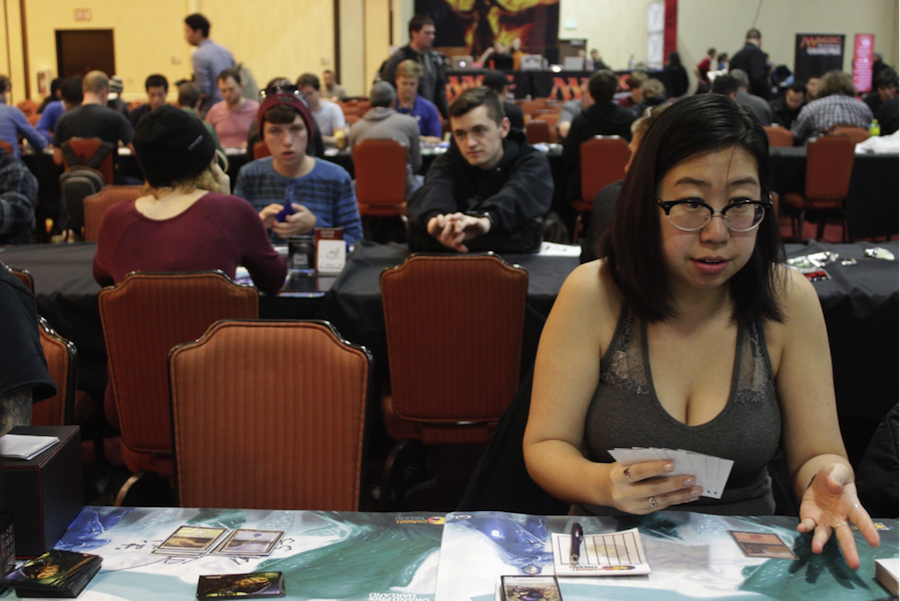
Jenny, 26, Administrative Assistant: “I have to say, when I first started playing here, I had a lot of shit to deal with. People were like, ‘Oh my god, you’re so bad at this game’—and I was. But then they’d say, ‘It’s because she’s a girl.’ For me, that made me want to play better. I wanted to give them what for. I wanted to surprise them—oh hey, you think you were gonna have an easy game? No, I’m better at this game than you.”
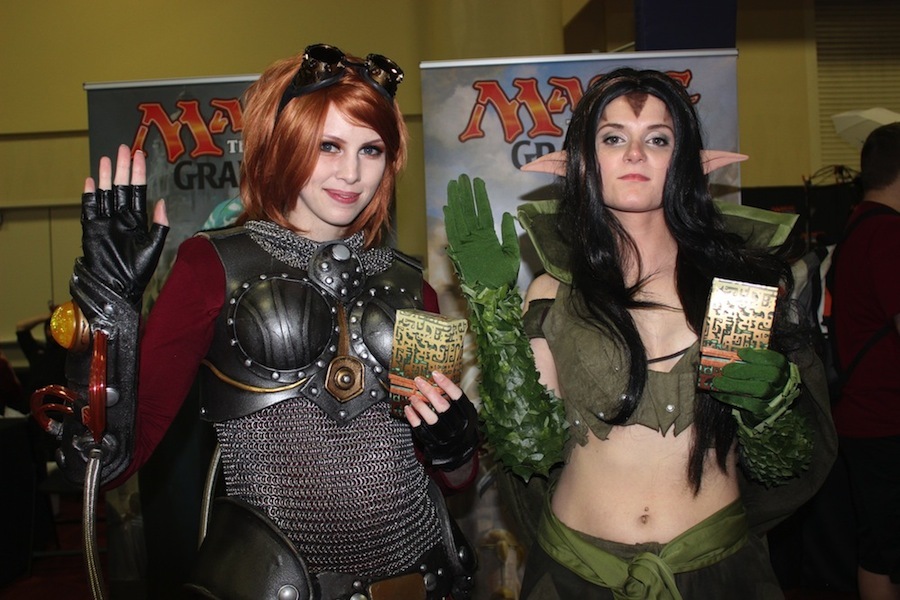
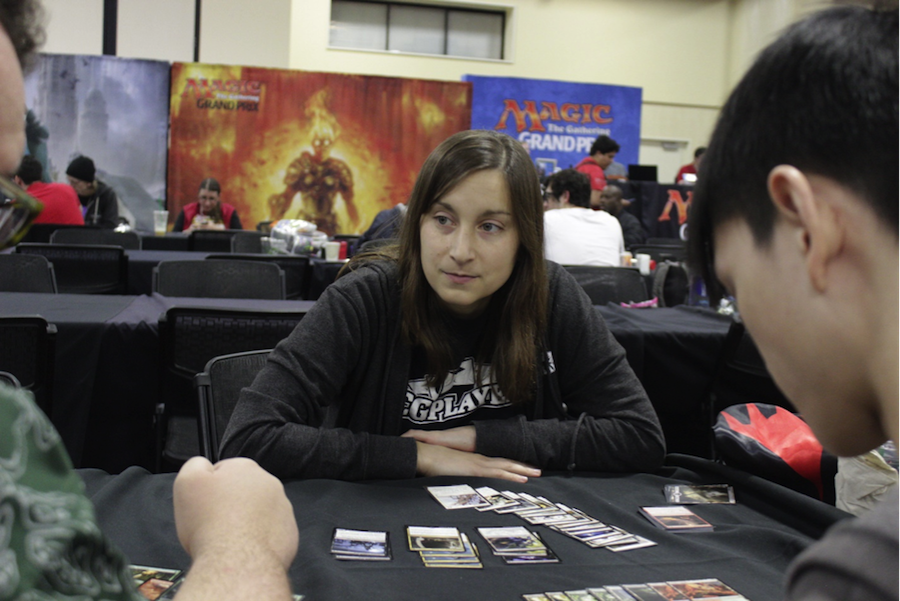
Melissa Detora, 34, Professional ‘Magic’ Player: “For me, I grew up playing competitive sports, so for me, it was like, oh, when you play a game, you’re supposed to try and win. That’s it. But for other girls, it’s like, ‘Oh, I do dance class, and I do my thing and I’m done and I do it for fun.’ But for me it was not like that. I played basketball—I have to play my best to win, no matter what. And when I lost, it was like, I just let down my team, I let down my parents, that sort of thing. Winning was very important to me…the best advice [to become competitive] is probably to find a group of players who are slightly better than you, and just play with them. And eventually, you’re gonna be as good as them. And then once that happens, find people better than them, and just keep going, until you’re at the Pro Tour.”
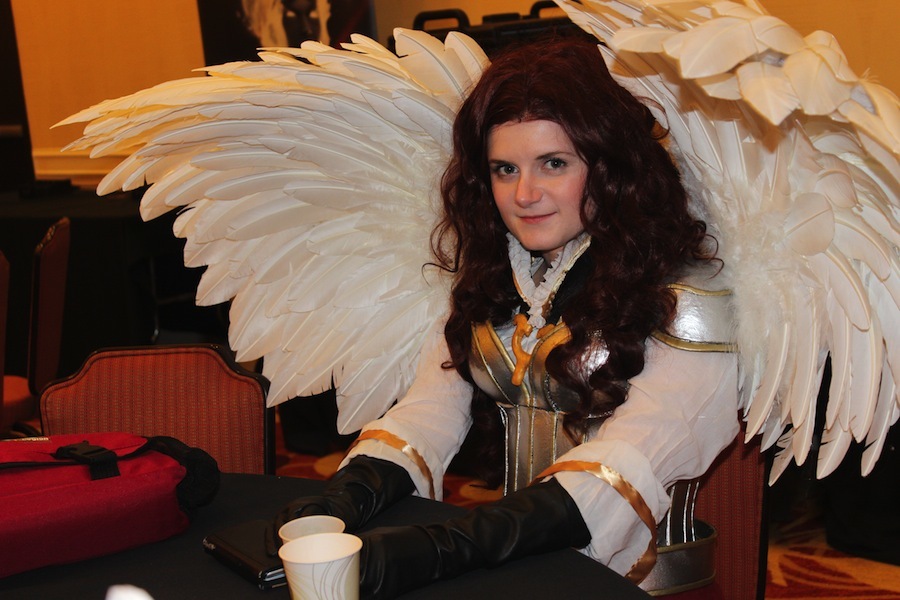
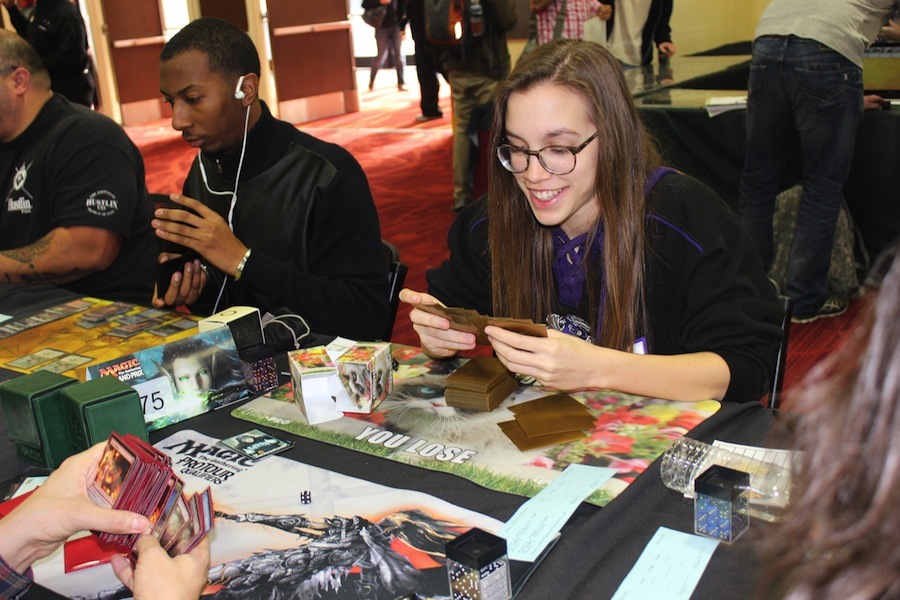
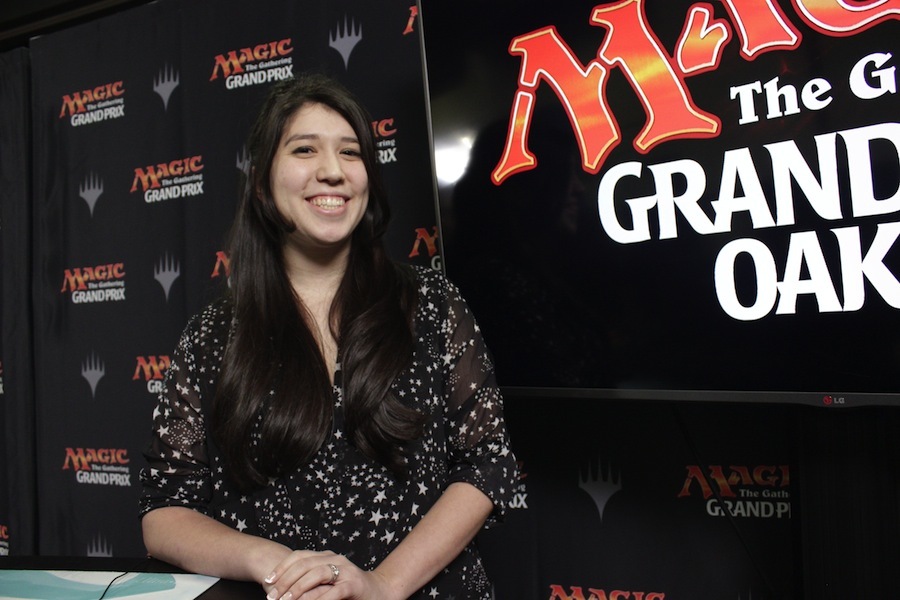
Athena Huey, 23, ‘Magic’ Streamer and Commentator: “I’m pretty sure [I’m the first woman to do Grand Prix coverage], in any capacity…Out of the negative feedback that I did receive this weekend was that I didn’t deserve this opportunity, that I only got this opportunity because of the people I knew—which, whatever, that’s how you get any job—but it was especially offensive to me, because I got this job because I pitched the idea…and it’s based on the previous work that I’ve done, not just because someone said, ‘Oh, we need a woman, let’s look around, oh there’s one, do you wanna do it?’ That’s not how it came about…you know when I got my first feature match, everyone was saying, ‘You just put her on camera because she’s a girl.’ No, we put her on camera because she hasn’t dropped a game yet. She’s 7-0.”
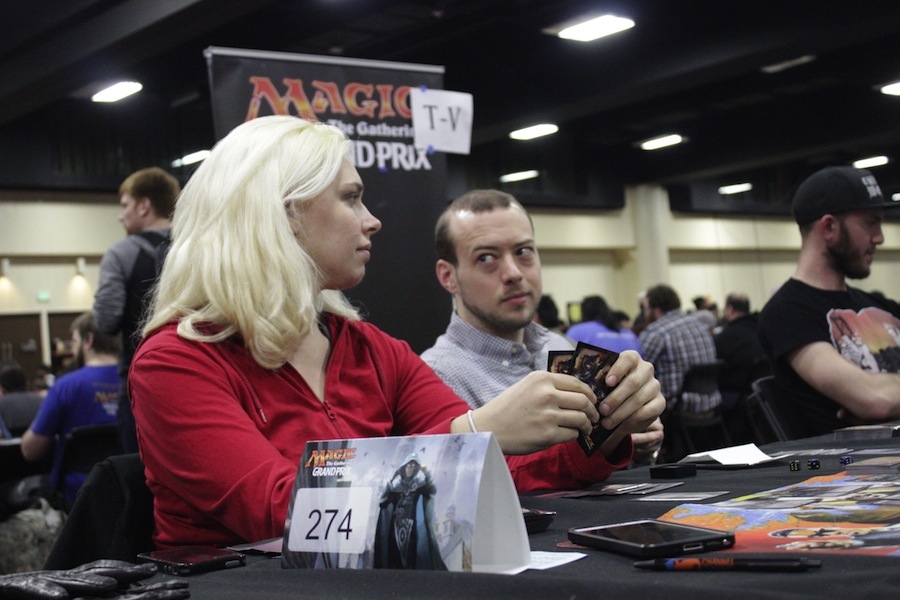
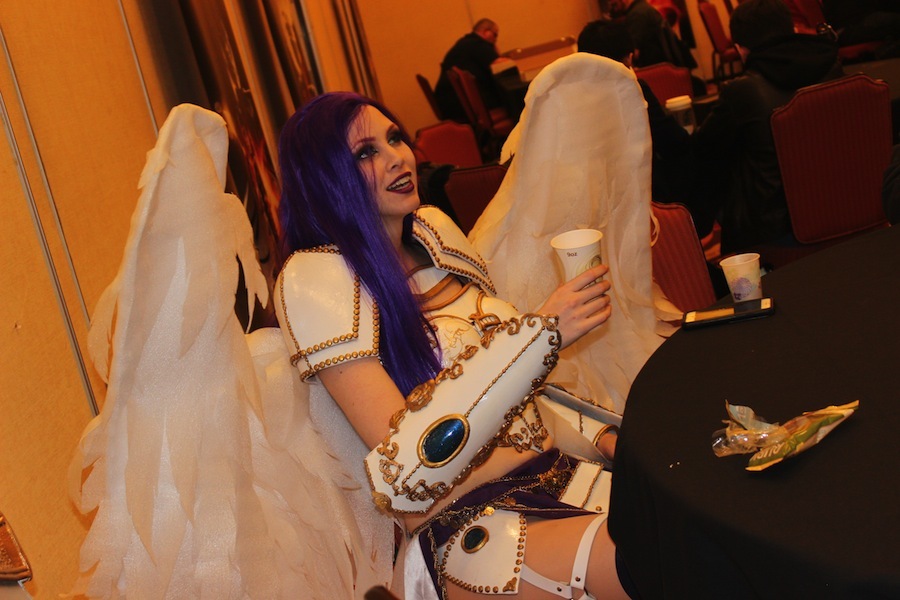
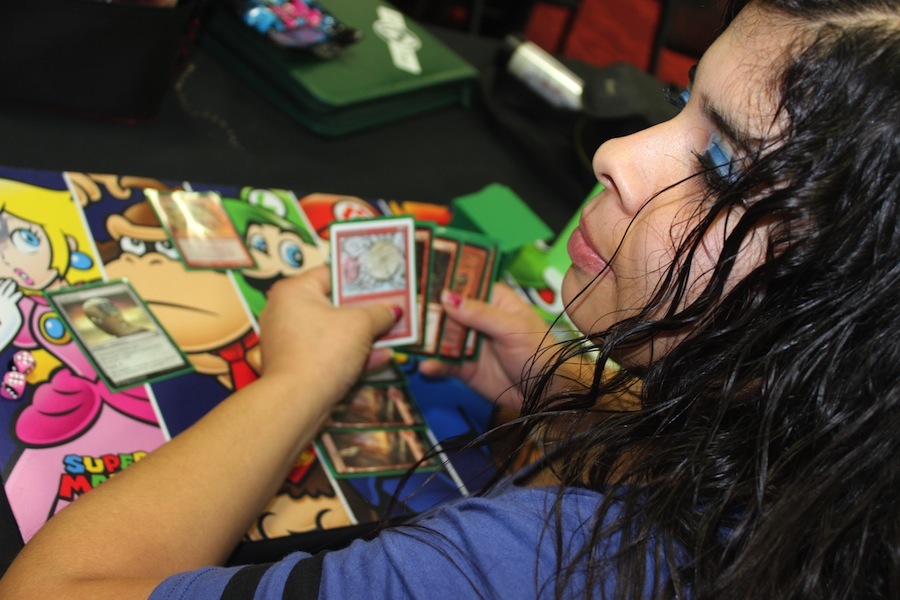
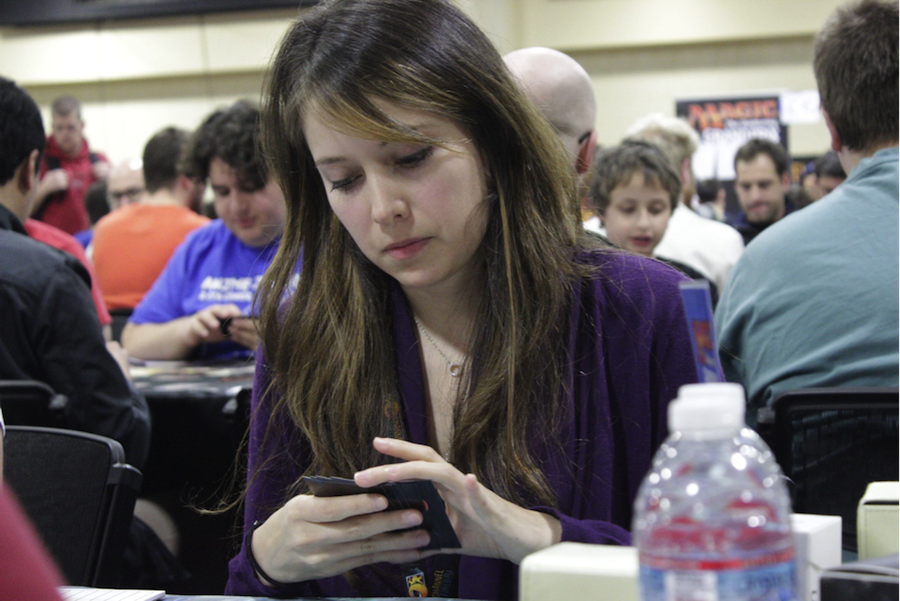
Gaby Spartz, 28, Co-founder and Vice President of Content at Dose; Magic Streamer: “We used to play kitchen table at home, and then I heard there was a thing called “Friday Night Magic.” At the time I thought it was silly, cuz it’s Friday night, you’re used to it being bar night, or whatever…we ended up going to a local game shop in the Chicago area and we had a blast…and after doing it for a couple months, we gave it our shot to our first Pro Tour Qualifier, and one thing snowballed into another, and we started driving to Grand Prix’s, and now I’m flying to Grand Prix’s. It took maybe about a year before I did that jump…Just go for it. I understand that it can be a little spooky. I’ve definitely gone to events where I was nervous…a lot of that stuff goes away with familiarity, when you get more practice, but really the community is very welcoming and very nice.”
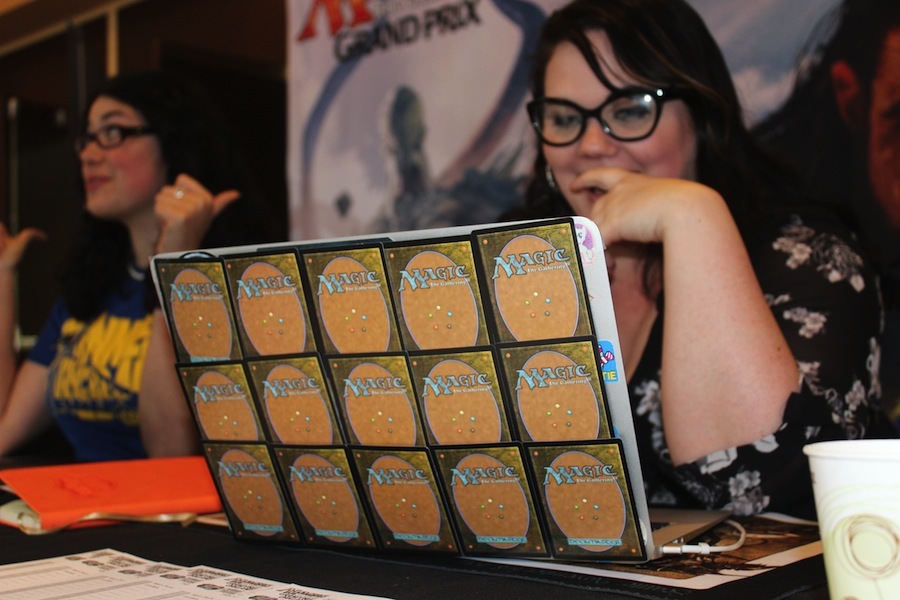
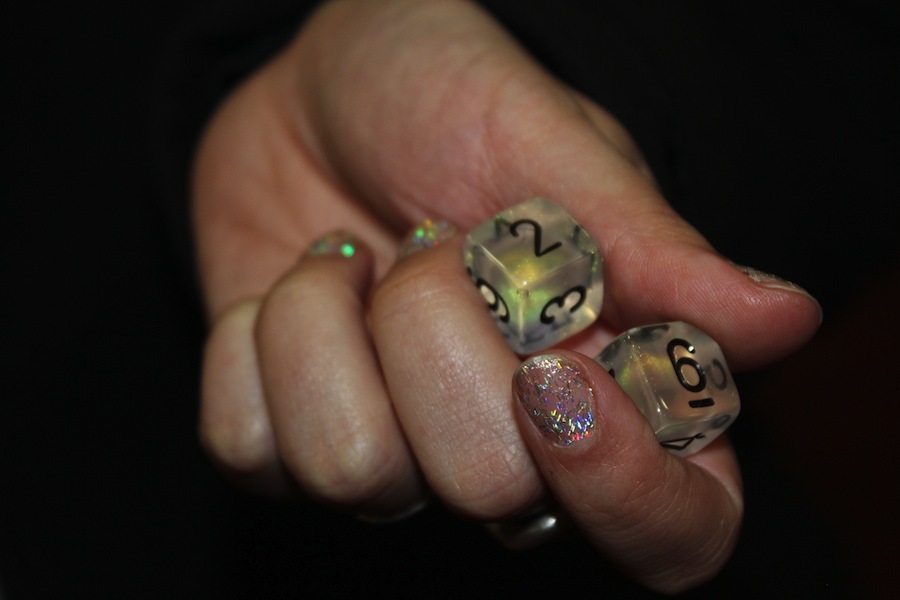
More
From VICE
-

Screenshot: Atari -

Screenshot: YouTube/Assassin JorRaptor -

Screenshot: Shaun Cichacki -

Screenshot: Warner Bros. Games
